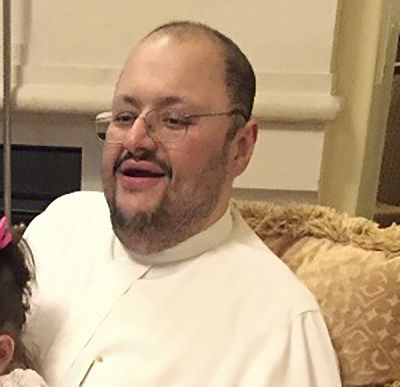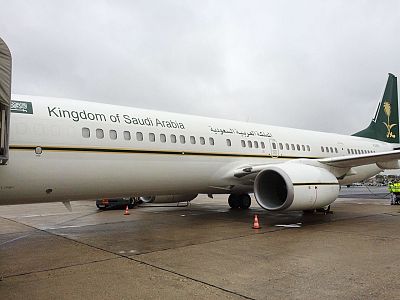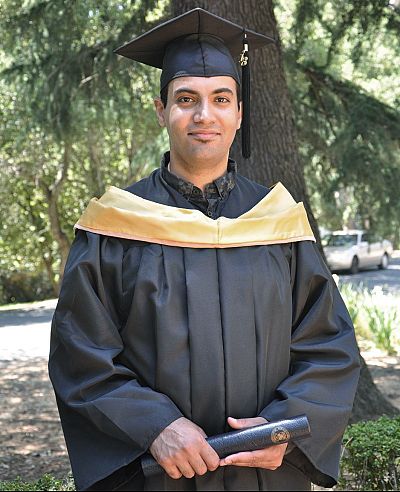Jamal Khashoggi's murder was no anomaly. To stifle criticism, Saudi officials will even forcibly remove opponents from Western countries.
Only days after Washington Post columnist Jamal Khashoggi was murdered last October, Saudi Arabia rushed to contain the diplomatic fallout by calling the crime a "rogue operation." But the incident was hardly unique. Within months, The New York Times and other news organizations reported that the regime had been sending squads across sovereign borders to physically repatriate Saudi dissidents.
Since then, in interviews by NBC News on three continents with more than 30 individuals — activists, national security experts, relatives of the "forcibly disappeared," and American, European and Middle East government officials — a clearer picture has emerged about the extent to which Saudi Arabian authorities have gone to imprison, repatriate and even murder fellow Saudis who dare to protest the kingdom's policies or somehow malign its image.
The interviews detailed how American citizens and Saudi families have been caught up in the kingdom's operations to silence critics, who include members of the royal family, students, activists and businessmen. Some of these missions to curtail Saudi dissidents have occurred in western countries closely allied with Riyadh.
One brazen operation in France, for example, involved Prince Sultan bin Turki, who had lived in Europe for years. A grandson of King Ibn Saud, the country's founder, the prince had had a long-time feud with powerful members of the monarchy, having accused them of corruption. In 2003, according to a complaint later filed with Swiss prosecutors by a Geneva-based lawyer working with bin Turki's American lawyer Clyde Bergstresser, the prince was drugged and secretly flown out of Switzerland to Saudi Arabia. For almost a decade, he was in and out of house arrest and banned from leaving the country.
Over time, the prince's health deteriorated. He made a request to travel to the United States for critical medical care, which Saudi leaders granted, and, after receiving treatment, he recovered to the point where he felt emboldened enough to strike back at his former captors: filing a lawsuit in Switzerland in 2014 against the regime, seeking formal criminal charges against Saudi leaders and monetary damages for the kidnapping.
Such a move was unprecedented: a Saudi royal pursuing a legal complaint in a foreign court against his own family. Bergstresser said he warned the prince that such a move could trigger an even more severe response from the kingdom than the 2003 abduction. "They came after you once," he said he told his client. "Why wouldn't they do it again?"
For the rest of the story, I turned to three American members of the prince's entourage, including a security guard, a nurse and an aide, who asked not to be identified to protect their safety. In January 2016, the trio said that along with medical caretakers and friends, they arrived at Le Bourget Airport, outside Paris, to board the prince's private charter jet, which was scheduled to fly from France to Egypt. They said that at the airport, however, they saw a much larger plane, a Boeing 737-900ER. (The three Americans remembered that their group had been led to believe that the aircraft had been provided as a courtesy from the Saudi embassy in Paris.)
A photograph of the plane they boarded that evening, revealed here for the first time, shows the words "Kingdom of Saudi Arabia" emblazoned on the hull. The tail bears the country's official emblem: a palm tree cradled between two swords. The tail number, HZ-MF6, according to online database registries, identifies the aircraft as being owned by the Saudi Arabian government.
Moreover, these records denoted, the plane's owner had requested that no public tracking of the jet be made available on the flight-tracking website, FlightAware.
Upon boarding the plane, the security team noticed that all of the flight attendants were male. While this seemed odd, the prince and his entourage took their seats nonetheless, and settled in for the ride. The jet took off at 7:30 p.m. for Cairo.
A few hours into the flight, the cabin lights and in-flight monitors were suddenly turned off. The plane was redirected to Riyadh, and one of the three recalled that armed security forces came aboard and physically removed bin Turki from the plane.
As he was dragged to the tarmac, the prince shouted a single name over and over again: "Al Qahtani! Al Qahtani!," members of the entourage said, recalling that he turned red with rage, his body sunken into the arms of his captors.
The prince was referring to Saud al Qahtani, a senior adviser to Saudi Crown Prince Mohammed bin Salman, and the head of both the Centre for Studies and Media Affairs and the Saudi Federation of Cyber Security, Programming and Drones. He has been identified by the CIA as the key aide involved in the operation against Khashoggi.
Two members of the entourage said that the remaining passengers were stripped of their phones, passports and laptops, and taken to the Ritz-Carlton Hotel in Riyadh. The following day, the members of the entourage were escorted one by one to a conference room and ordered to sign what amounted to nondisclosure agreements, promising never to discuss what happened on the flight. They were held for three days before they were driven to the airport and flown out of the country.
Also in the room at the Ritz, they recalled, was a clean-shaven, unarmed man dressed in a traditional white thobe and ghutra, the red-and-white headdress favored by Saudi men. Two members of the entourage told me that the man was al Qahtani; both said they were able to identify him two years later when, after Khashoggi's murder, they recognized his face from news reports. Since then, none of the three Americans on board, or the other Saudi insiders I have spoken with, have heard anything about bin Turki's whereabouts.
Al Qahtani is believed by cyberactivists and Saudi experts to have shaped the country's broader cybersecurity efforts. His online network — according to human rights monitors and online cybersecurity experts — has included Saudi computer sleuths and hackers poised to go after government critics and dissenters at home and abroad. As first reported by Motherboard, al Qahtani worked closely with Hacking Team, an Italian surveillance company that sells intrusion resources and "offensive security" capabilities around the globe. (The Hacking Team did not respond to a request for comment.)
One of the few semi-official statements ever made about bin Turki and other royals abducted from Europe came in 2017 from the former head of Saudi Arabia's foreign intelligence service, Prince Turki al Faisal, who dismissed the missing men as "so-called princes" and "criminals." Al Faisal said: "We don't like to publicize these things because we consider them our domestic affairs. Of course, there were people who worked to bring them back. [The men] are here [in Saudi Arabia]; they didn't disappear. They are seeing their families."
Last October, however, Reuters reported that a senior Saudi official had shown the news agency "internal intelligence documents which appeared to show the initiative to bring back such dissidents as well as the specific one involving Khashoggi." The news agency quoted the official as saying there is a standing order to negotiate the return of dissidents peacefully, which gives negotiators the authority to act without going back to the leadership. These attempts to kidnap and return alleged offenders, according to the official, were part of the nation's "campaign to prevent Saudi dissidents from being recruited by the country's enemies."
Two U.S.-based Saudis I spoke with told me that federal agents had recently approached them, handed over their business cards, and warned them that, based on up-to-date intelligence, they should heighten their personal security. Asked about the interactions, an FBI spokesperson said the bureau "regularly interacts with members of the communities we serve to build mutual trust around protecting the American public."
Rep. Adam Schiff, D-Calif., the chairman of the House Intelligence Committee, has said he plans on examining "what threat is posed to [Saudi] individuals residing in the United States, but as well, what are the practices of [the Saudi government]."
Also at risk, according to academic and diplomatic sources I have interviewed, are Saudi foreign exchange students. Some who have been vocal about the kingdom's human rights record have suddenly had their financial aid suspended. One student, who asked not to be identified, disclosed emails obtained from the Saudi Embassy in Washington, saying that the only way to resolve an impending suspension would be to immediately return to Saudi Arabia to file an appeal.
The case of Abdul Rahman al Sadhan is particularly troublesome. A Saudi citizen — and the son of an American — al Sadhan was a 2013 graduate of Notre Dame de Namur University, a Catholic school in Belmont, California. After earning his degree, he returned to the kingdom to be part of what he thought would be a changing nation.
He worked for five years for the Saudi Red Crescent Society, a charitable organization. Then, according to his mother and sister in the U.S., uniformed men showed up at his office on March 12, 2018,, saying he was wanted for questioning. He left with the authorities and his relatives said he has not been heard from since.
His family says his forced disappearance may have been prompted by his online activity, including social media posts which were often critical of the state. But they can't prove that, and al Sadhan has never been charged with a crime.
The perpetrators of these abductions may never be brought to justice. While several members of the team that killed Khashoggi have reportedly been put on a trial, the proceedings have gone on behind closed doors. The Saudi government did not respond to requests for comments about the disappearance and detention of several of its citizens.
Al Qahtani has been fired from his post as royal adviser, and is the subject of sanctions placed on him by the U.S. Treasury Department for his involvement in the Khashoggi operation. But he is still believed by some Saudi experts to be a free man with considerable influence behind the scenes. (The Saudi government did not respond to repeated requests for comment.)
Meanwhile, despite a bipartisan effort on Capitol Hill to hold the Saudi Arabian government accountable for Khashoggi's killing, President Donald Trump vetoed a congressional bill that would have prohibited arms sales to the kingdom over its human rights violations. The White House said the bill would negatively affect security cooperation with Saudi Arabia. Without the two-thirds majority in each chamber of Congress needed to override Trump's veto, it appears that the U.S. will continue to do business as usual with Saudi Arabia.














